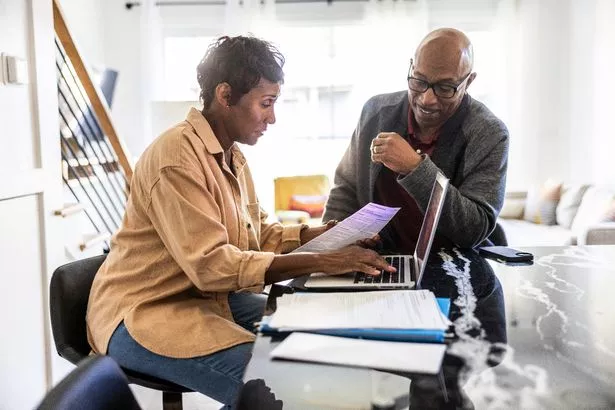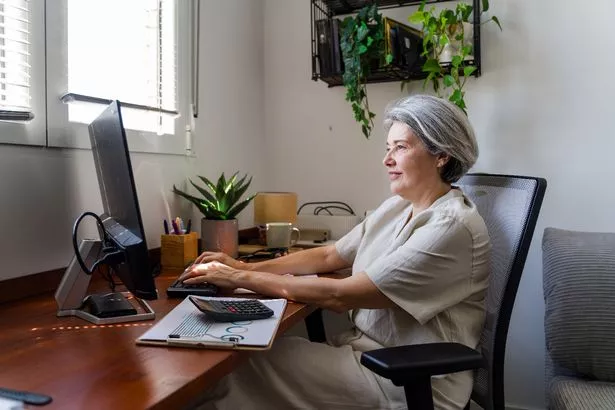HMRC has issued a warning for anyone with a pension pot over extensive tax charges
Kieran Isgin Money & Lifestyle writer
14:20, 21 Jul 2025
 Some people could be at risk of committing tax avoidance with their pension(Image: Getty Images)
Some people could be at risk of committing tax avoidance with their pension(Image: Getty Images)
HMRC has warned that anyone with a pension pot could be at risk of accidentally committing tax avoidance and costing more than they may expect.
In exceptional financial emergencies, some people may be tempted to take out cash from their pension early. However, before doing this they should be aware that there are strict tax rules surrounding the use of a pension pot.
If these rules aren’t followed properly, those who have put savings away could risk making an ‘unauthorised payment’ which may lead to the recipient needing to spend far more than they initially intended to make up for it. HMRC itself has warned that there are serious tax implications associated with taking out a pension before you’re supposed to.
 Unauthorised payments are subjected to excessive tax rules(Image: Getty Images)
Unauthorised payments are subjected to excessive tax rules(Image: Getty Images)
Writing on X, HMRC said: “Thinking of dipping into your private pension pot early? It could be tax avoidance and could cost you a lot more than you think. Don’t get caught out”
Private pension rules broken downContent cannot be displayed without consent
Private pensions generally have slightly different rules compared to state pensions. For example, a personal private pension is a form of pension that you set up and manage yourself, instead of allowing your employer to manage it.
Typically, a personal pension will have a set age of when the money can begin being taken out. According to official government guidance, it is abnormal for this age to be before 55, however, if you’re not sure of when you can start taking the money out, you should contact the pension provider.
Furthermore, HMRC has strict rules on when a payment is made outside of the set tax rules, especially for pensions. Such unauthorised payments are generally subject to excessive tax charges which must be paid.
According to HMRC guidance, some examples of an unauthorised payment can include:
- continued payments of pension after the member’s death
- trivial lump sums in excess of £30,000
- when a scheme realises it incorrectly calculated the amount of the member’s pension pot following a transfer of funds or purchase of an annuity and the balancing payment is made directly to the member
- most lump sum payments to cash-in or access pension funds before age 55 except when: the member retires due to ill health if before 6 April 2006 the member had the right under the pension scheme to take their pension before age 55
 A variety of things can be considered unauthorised(Image: Getty Images)Tax charges on all unauthorised payments
A variety of things can be considered unauthorised(Image: Getty Images)Tax charges on all unauthorised payments
If you make an unauthorised payment through your pension, it could be subject to three different tax charges: unauthorised payments charge, unauthorised payments surcharge, and scheme sanction charge. An unauthorised payment charge is taxed at 40% while the surcharge is taxed at 15%, leading to a total taxable rate of 55%.
Furthermore, the scheme administrator will be subjected to a 40% charge of the unauthorised payment on most unauthorised payments, although they may receive some credit where the charge has been paid.
How to pay tax on unauthorised payments
Typically, those who make an unauthorised payment will be required to pay the tax charge through a mandating procedure involving their pension scheme or by completing a Self Assessment tax return.
Those making an unauthorised payment can follow the mandating procedure once they have taken out the payment. This is typically done by giving the scheme administrator authority to deduct the tax from the payment and give it to HMRC. Generally, no further action is required on the person taking out the payment, as the scheme administrator should deal with the tax procedure.
Otherwise, the unauthorised payment will need to be included in the recipient’s Self-Assessment. HMRC has also warned that some firms may attempt to mislead those with pension pots by promising that they can use legal loopholes to avoid paying tax.
However, this is never the case, and the government department has stressed there is no legal loophole to avoid paying tax on unauthorised payments.
Further details on paying the proper tax on unauthorised payments can be found here.
